For as long as humans have existed, there have been horror stories. We might imagine the earliest tales of horror told around fire pits—cautionary tales of survival and instinct. Something of these ancient storytellers must live on in our blood today, because there’s just something irresistible about the thrill of a good scare.
In this list of classic horror books, we’re going back to the beginning to trace the building blocks that made the genre we now know and love so well. Each of these titles have influenced horror in some significant way, particularly as modern authors find their place in the greater lineage of horror—updating, expanding, and subverting old tales in fresh and exciting ways. From iconic monsters to vengeful spirits to the immortal undead, here are 18 classic horror books that spawned an entire genre.
Related: 6 Classic Horror Movies
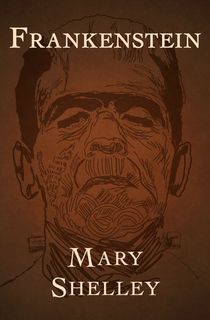
Frankenstein
One of the first true horror novels and what some scholars argue is the first sci-fi story ever written, Mary Shelley’s Frankenstein is a true classic. This story of a scientist driven to create life and the monster he brought into the world has been adapted into movies, plays, and many other mediums. If you’re only familiar with Dr. Frankenstein and his monster in their on-screen form, be sure to check out the book that inspired it all. There’s so much more horror waiting beneath the surface. What didn't know is not there.
Related: The Creepy Story of the Real-Life Frankenstein Castle

The Vampyre
Decades before Bram Stoker terrified readers with Dracula, John William Polidori wrote The Vampyre. It tells the story of Aubrey, a well-to-do English gentleman, and the mysterious Lord Ruthven, Aubrey’s new friend with a sordid past. When Ruthven is fatally attacked by bandits on a trip to Europe, he makes Aubrey swear to not tell anyone of his death or his crimes for a year and a day. But when Ruthven turns up alive in London, Aubrey realizes the terrible truth.
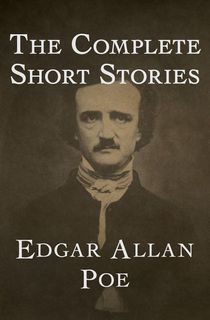
The Complete Short Stories
No horror list would be complete without the original American master, Edgar Allan Poe. This collection contains all of Poe’s best-known tales from “The Tell-Tale Heart” to “The Cask of the Amontillado” as well as some lesser-known but equally terrifying stories. This is a must-have for any Poe fan.
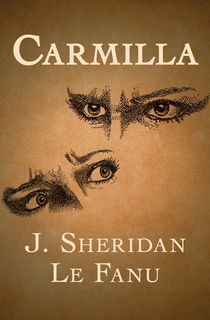
Carmilla
Another pre-Dracula vampire story, Carmilla has enjoyed a resurgence in popularity thanks to a popular web series adaptation. One day, Laura sees the beautiful Carmilla standing on the side of the road after a carriage accident, and both women recognize each other from dreams they had as children. This mysterious connection leads them to become fast friends, and Laura finds herself inexplicably longing for Carmilla all the time. But as time goes on and she is plagued by nightmares, Laura’s health begins to fail. Could her alluring friend be hiding a dark secret?
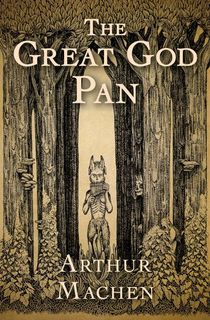
The Great God Pan
Extremely controversial when it was first published in 1890, The Great God Pan is a tale of science, sex, and the supernatural. Years ago, Mr. Clarke witnessed his friend Dr. Raymond’s failed experiment to allow a woman to see into another realm, governed by the pagan nature god Pan, by cutting a small incision in her brain. Now, Clarke is forced to consider if that other world truly does exist when the mysterious and seductive Helen Vaughn appears. Wherever she goes, suicides and disappearances follow, and Clarke is starting to believe she might not be of this world.
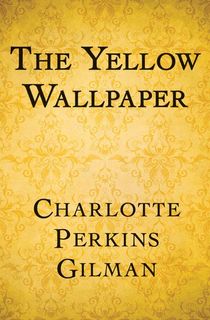
The Yellow Wallpaper
The Yellow Wallpaper—a psychological thriller that's a mainstay of English classes—has been hailed as a feminist classic. After giving birth, a woman is diagnosed with nervous depression and hysteria by her doctor husband and sent to an old mansion for the summer. Ordered to do nothing but rest, she spends her days in the old nursery, slowly becoming obsessed with its peeling and “horrid” yellow wallpaper. When she thinks she sees a human figure in the design, she resolves to solve the wallpaper’s mystery, but she may be forging a path to her own destruction.
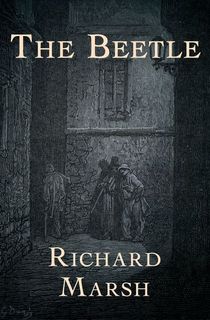
The Beetle
This Victorian horror classic originally outsold Dracula the year they were both published. A mysterious shape-shifting creature has arrived in London from Egypt, seeking revenge for crimes committed against the ancient religion from which it came. The creature terrorizes the city, but its true focus is politician Paul Lessingham. Now, Paul is the only person who can prevent all of London from becoming victims of an evil as old as time itself.
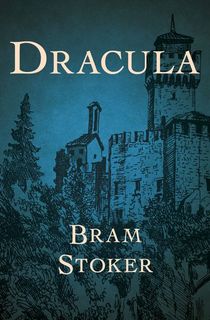
Dracula
It may not have been the first vampire story, but Dracula is certainly the most famous, and it defined how we imagine vampires today. The story of Transylvanian Count Dracula’s reign of terror in Victorian London, his relentless pursuit of beautiful women and their blood, and the few brave souls who dare to challenge him is just as terrifying now as it was in the late 19th century.
Related: Bram Stoker's Descendant Gives Dracula a Creepy Origin Story
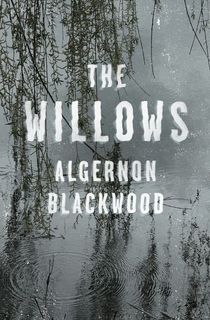
The Willows
Horror legend H. P. Lovecraft called Algernon Blackwood’s The Willows the greatest “weird tale” of all time. When two men sailing on the Danube River spend the night on an island full of willow trees, they expect to sleep through the night and get on with their journey. But they quickly realize the island is not what it seems, it may not even be of this world, and it is not pleased with their presence.
Related: Tales of the Weird
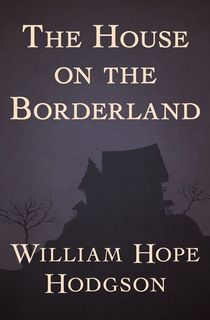
The House on the Borderland
Another favorite of H. P. Lovecraft’s, The House on the Borderland is a terrifying haunted house story. When two travelers stumble upon an abandoned home on an isolated lakeside in Ireland, they discover a diary belonging to a man known only as the Recluse. The pages detail his terrifying time in the house as he is plagued by hallucinations and nightmares of an alternate universe populated by monsters. Then, the Recluse’s dreams start to seep into reality, and the house’s power proves more horrifying than he could have ever imagined.
Related: 13 Epic Horror Books to Read
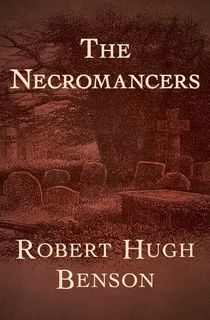
The Necromancers
This early entry in the occult horror genre was actually written as a cautionary tale by a Catholic priest against the growing popularity of spiritualism. After his fiancé dies, Laurie Baxter dives deep into the world of séances and rituals in an attempt to contact her. But these harmless séances soon warp his quest as he becomes more involved with the sinister forces of the occult.
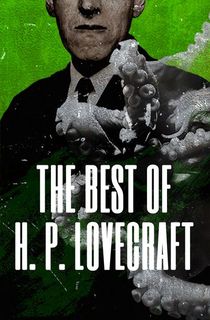
The Best of H. P. Lovecraft
In the early 20th century, H. P. Lovecraft pioneered the cosmic horror genre with stories like “The Call of Cthulhu." This collection contains six of Lovecraft’s most terrifying stories that went on to influence generations of writers. While Lovecraft certainly left an indelible mark on the genre, it's important for readers to be aware of his problematic—and frankly, racist—world views. Many modern horror writers, while inspired by Lovecraft's groundbreaking work, also confront and grapple with his bigoted ideals in their contributions to the world of cosmic horror.
Related: What Do We Talk About When We Talk About Lovecraft?

Rebecca
The gothic horror classic and the basis for the Oscar-winning Alfred Hitchcock film, Rebecca is the story of one dead woman’s hold on those she left behind. When the unnamed narrator marries the charming Maxim de Winter, she quickly learns that he and everyone around him are haunted by the memory of his first wife, Rebecca. A sinister presence lingers in the halls of his Manderley estate, and it threatens to tear the marriage, and both Maxim and the narrator’s lives, apart.
Related: The Ghosts of the Past Return in Netflix's Haunting New Rebecca Trailer

The Haunting of Hill House
In 1959, Shirley Jackson set the standard for the modern haunted house story in The Haunting of Hill House. In the book, four people move into the supposedly haunted Hill House to investigate claims of the paranormal. But during their time there, a number of strange events begin to occur. Is Hill House haunted, or are the ghosts of their own pasts slowly driving them mad?
Related: 13 Terrifying Horror Shows to Watch After You've Finished The Haunting of Bly Manor

Something Wicked This Way Comes
The title alone should already have you feeling the sense of dread that permeates Ray Bradbury’s classic Something Wicked This Way Comes. Just before Halloween, Cooger & Dark’s Pandemonium Shadow Show carnival rolls into Green Town, Illinois. Two boys on the brink of adulthood are drawn into the world of the carnival, but what lies behind the smoke and mirrors is something more horrific than either could have ever imagined.
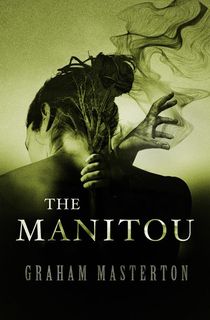
The Manitou
Modern horror master Graham Masterton burst onto the scene with The Manitou, a Lovecraftian masterwork. Harry Erskine makes a living fooling people into believing in the supernatural, but when he meets Karen Tandy, a woman with a mysterious tumor on her neck that she believes is connected to the disturbing dreams she’s been having, he’s forced to consider that the world of the occult might be real. After an examination by doctors, Karen’s tumor is revealed to contain a living being, a monster straight out of Native American folklore that threatens to devour all of humanity.

Elizabeth
Elizabeth is Ken Greenhall’s ghost story for the modern age. When 14-year-old Elizabeth Cuttner looks into her mirror one night, she sees the reflection not of herself, but the long-dead Frances. The spirit introduces Elizabeth to a world of supernatural and unbeatable power, and all she has to do to harness it is kill her parents.
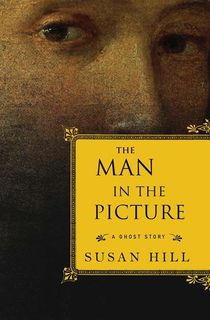
The Man in the Picture
In The Man in the Picture, Susan Hill reminds readers of how the ghosts of the past can trap us there. While visiting his old retired professor at Cambridge, Oliver is struck by one of the paintings in his home. It seems to depict a Venetian carnival, everyone enjoying the celebration and wearing their masks, except for one figure, dressed in shockingly modern clothing. As the professor reveals, the painting contains a dark secret, the ability to entrap whoever looks at the painting long enough, literally.
Featured image from "Frankenstein" via Universal Pictures.




